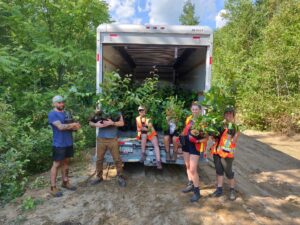Upcoming Event!
Join us on July 26th to conduct some citizen science of the monarch life cycle along the Nashwaak River in Fredericton. We will count stems of milkweed and examine them for eggs, caterpillars, chrysalises and adult butterflies. This will be part of the Mission Monarch International Monarch Monitoring Blitz.
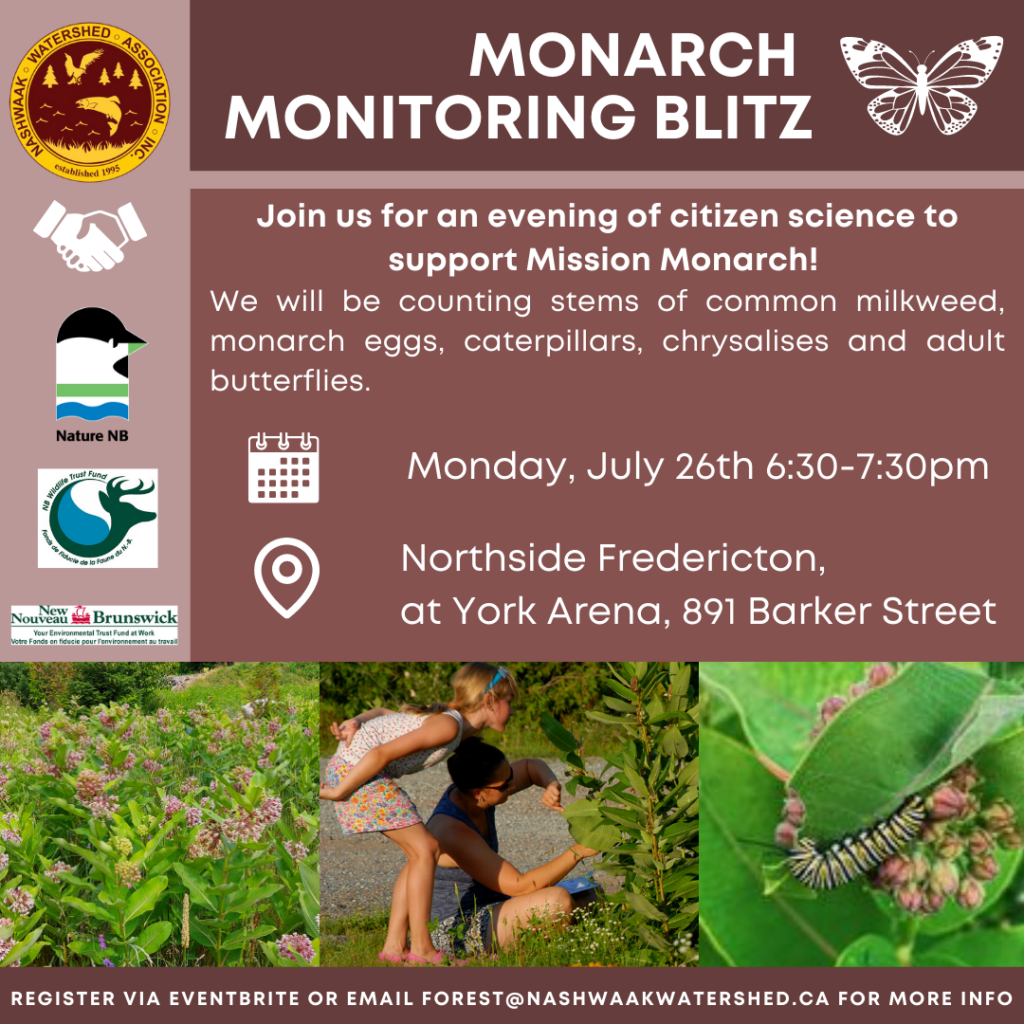
Did you know milkweed is the only plant that provides food for the caterpillar of the monarch butterfly?
Keep reading to learn more about monarchs and what you can do to support their habitat!
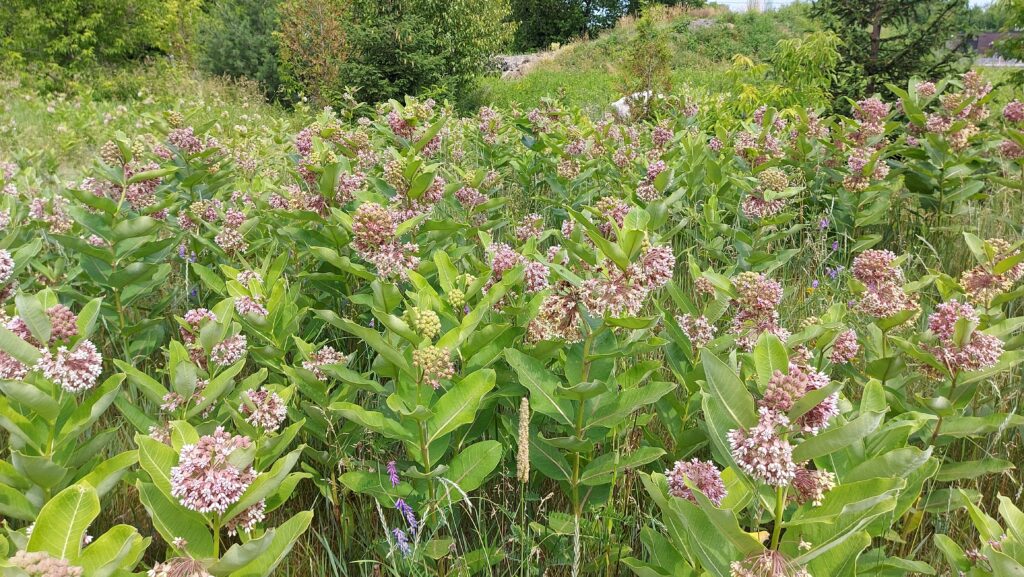
Monarch butterflies are an iconic species at risk in Canada. Each fall, these beautiful butterflies set out on a 4,000-to-5,000 kilometer journey from Southern Canada to their wintering sites in the mountain forests of central Mexico. This is one of the longest insect migrations in the world! Each spring they make their way through the United States and back to Canada. To learn more about this endangered species, check out the WWF page on monarchs.
Milkweed is the only plant that provides food for the caterpillar of the monarch butterfly. Monarch’s lay their eggs on milkweed, and once they have hatched, the juvenile caterpillars feed on milkweed leaves. The caterpillars grow dramatically over 2 weeks, and then forms a chrysalis. After another 2 weeks, the adult butterfly emerges.
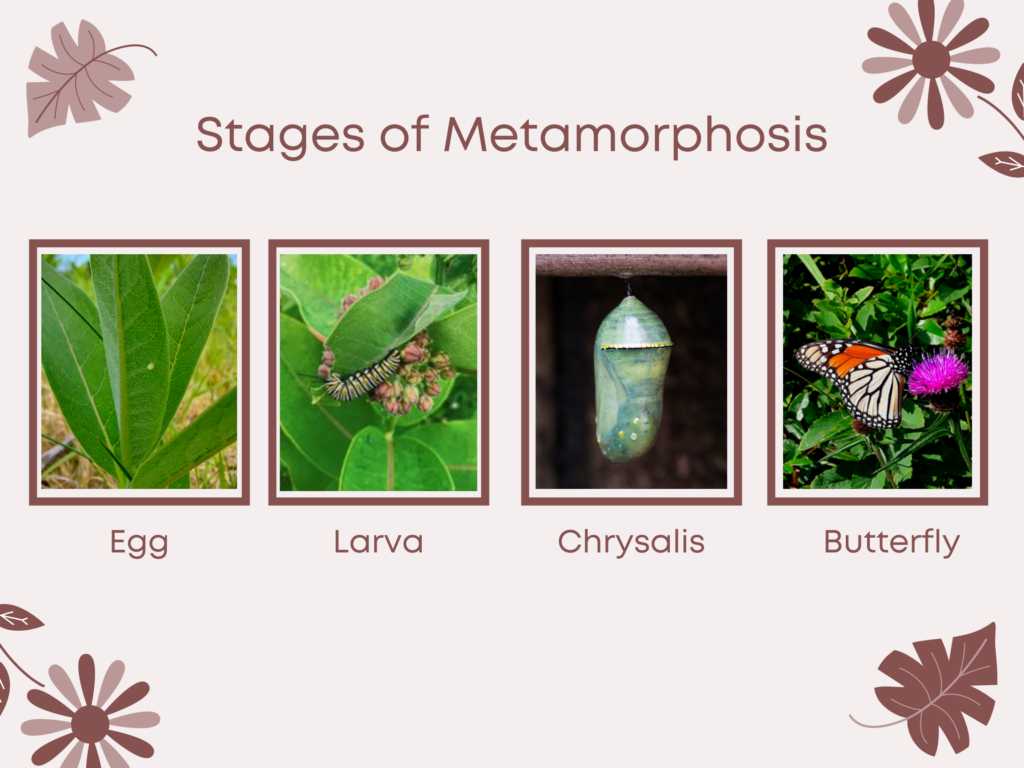
Unfortunately, this beautiful and resilient species is threatened by habitat loss. Disruptions to their migration are caused by climate change, and by the loss of native plants (including milkweed species) along their migratory corridors. Deforestation of their overwintering sites also threatens this species. Read more about monarchs and their journey to New Brunswick.
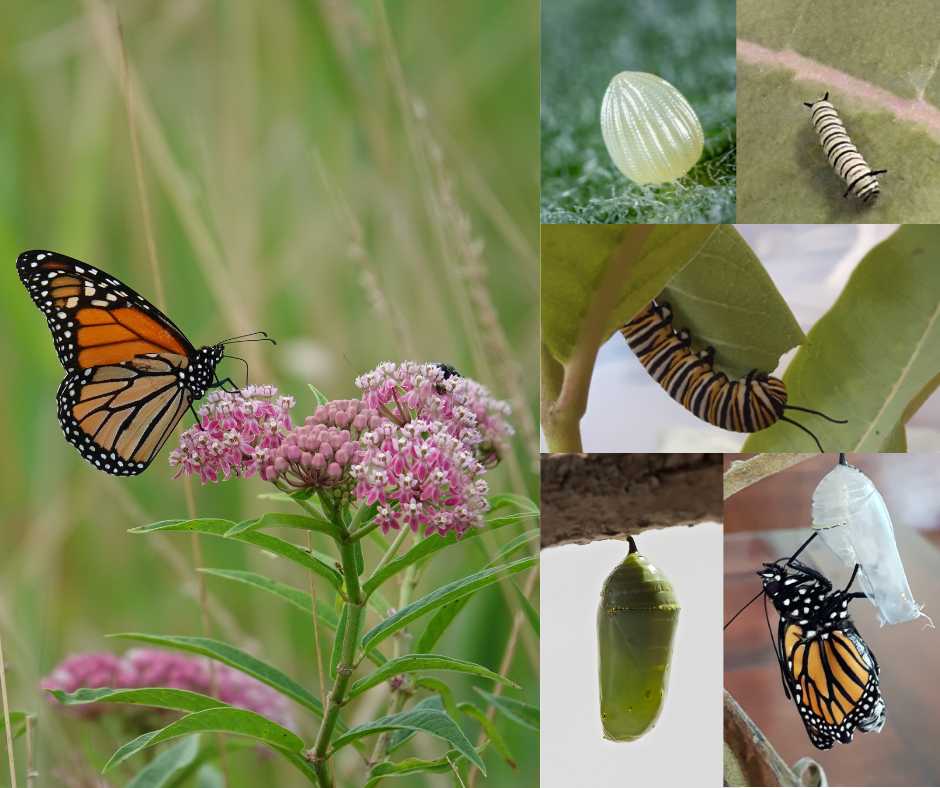
Planting either swamp or common milkweed, the two native species in New Brunswick, helps to provide this butterfly with much-needed habitat. Swamp milkweed is often preferable in a garden setting because it does not spread throughout the site. It requires moist soil to become established, so watering it throughout the first few years is recommended.
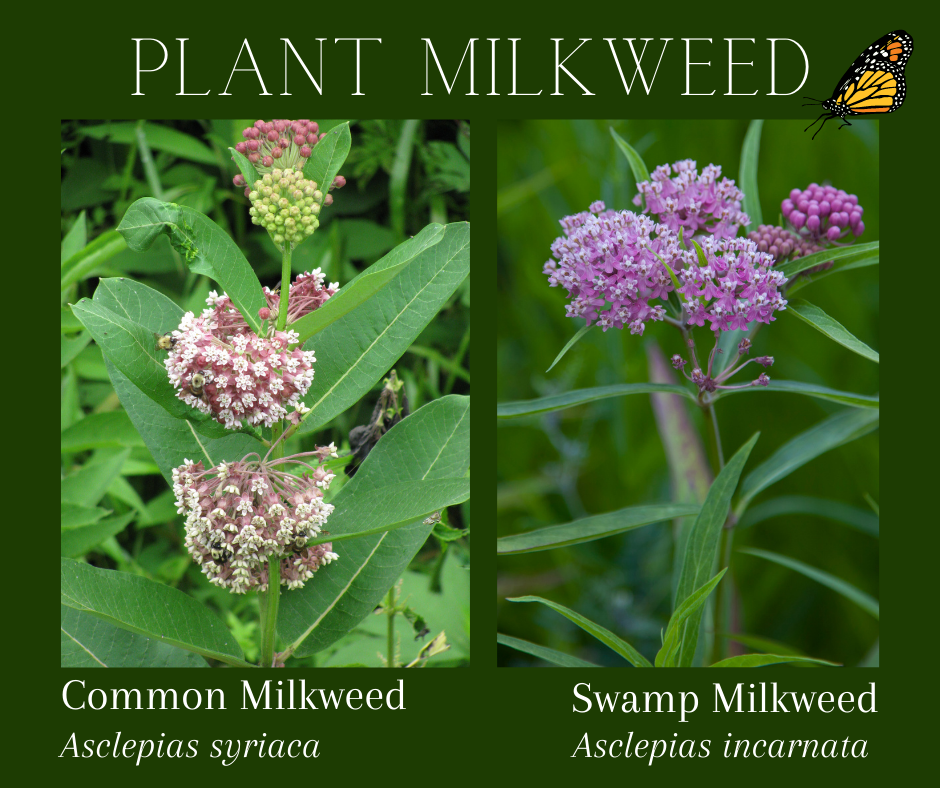
Learn more about how New Brunswick is conserving monarch butterflies, check out this informative video by Nature NB, click here!

